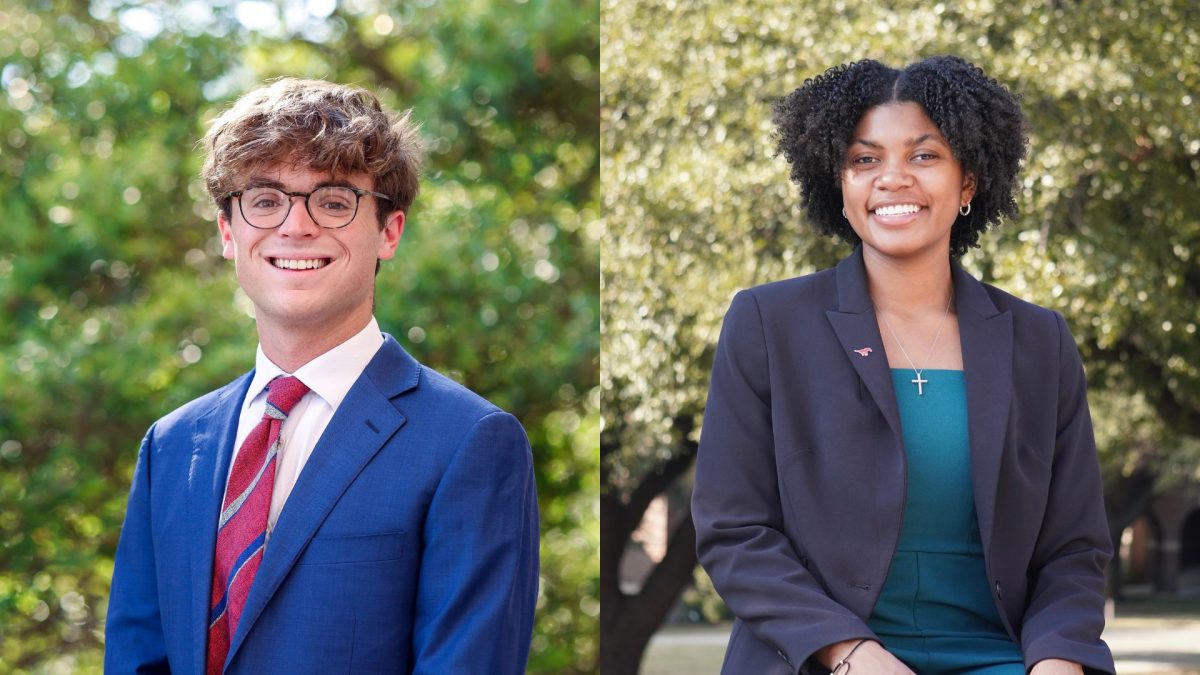Thursday afternoon saw the Hughes-Trigg Student Center teemingwith reporters from local and network news stations, all itching toget the scoop on what exactly caused the resurgence of freedom ofspeech and affirmative action issues surrounding the YoungConservatives of Texas Bake Sale.
The group’s bake sale on Tuesday, intended as a protest ofaffirmative action, included a sign that read: baked goods sold for$1 to white males, 75 cents for white women, 50 cents for Hispanicsand 25 cents for blacks.
SMU’s group is not the first to hold the event on itscampus. Conservative groups at the University of California-LosAngeles, California-Berkeley, the University of New Mexico, theUniversity of Michigan and others have already held the event buthave not had the same reaction.
According to Hughes-Trigg building manager Tim Moore, twostudents came to the Mane Desk upset about signage on the Westbridge booth sponsored by the YCT. Moore and Director of StudentAffairs Arlene Manthey went to the West bridge to see what washappening.
“We saw a diverse group gathered in front of the booth. Wealso saw another piece of signage that read ‘AffirmativeAction is Racist,’ along with the sign stating the prices forthe sale,” Moore said.
Seeing that the situation could have become volatile, Moore andManthey confronted the students running the booth and made themstop the bake sale.
“I saw it as simply several students debating affirmativeaction,” YCT President David C. Rushing said. “Therewere about a dozen students standing around the booth, but Ididn’t feel threatened.”
To whatever degree the situation was escalating, though, Mantheyand Moore cited another reason for shutting the booth down.
“We simply spoke with the Young Conservatives andidentified that SMU policies and code of conduct came into play,and that charging different prices for different ethnicities isdiscriminatory,” Manthey said.
She specified SMU Handbook Policies 3.14 and 3.20, which state”the harassment and protest policies, including that protestsare acceptable as long as the normal function of the university isnot disrupted and protesters remain respectful to the rights ofothers.” Using these guidelines, with two students alreadyoffended and a potential situation ensuing, the directors madetheir decision.
“We feel that the students that were offended by theposters should be the ones offended by affirmative actionitself,” Rushing said. “They should be appalled thatthey get extra points for the color of their skin, instead ofgetting credit based on merit.”
SMU’s Office of News and Information released a statementThursday, which stated that the group failed to inform universityofficials of the true purpose of the event. Along with this, thestatement cited that the university has a designated debate area oncampus for students to set up tables with information on variouspolitical issues, which are available to all student organizations.It also mentioned SMU’s long tradition of encouraging opendebate and considers such dialogue central to its academic mission.This being stated, however, signage expressing political points ofview is a matter of free speech consistent with universitypolicy.
“We welcome differences in opinion; that’s what auniversity is all about. But there are non-disruptive ways to dealwith free speech issues,” Manthey said.
She continued, saying that the group didn’t define itsintent for the bake sale as a protest, which was the main reasonshe and Moore shut the booth down. The other was studentsafety.
“The situation was escalating to the point ofdanger,” Vice President of Student Affairs Jim Caswellsaid.
Freedom of speech and potentially offensive speech are protectedin the First Amendment of the U.S. Constitution. Hate speech;however, has come under fire in recent years, as universitiesgrapple with controversies over “fightin’ words”that are undeserving of First Amendment protection, because”the perpetrators intention is not to discover truth orinitiate dialogue, but to enure the victim,” said Charles R.Lawrence III, professor of law at Stanford University in his bookWords that Wound.
Since SMU is a private institution it is within the discretionof the university to decide what types of speech are acceptable onits property. SMU does allow organized protests but only on thesouth stairs outside of the Hughes-Trigg Student Center. Forms toreceive permission to hold a protest are available in the StudentActivities Center.
“Sensitive speech is part of the openness of ourdemocracy,” SMU journalism professor and First Amendmentexpert Carrie Criado said. “Sometimes the conduct of groupsare offensive, but what this does is [propel] people todiscussion.”
Thursday afternoon, reporters sought out minority students tospeak about their reactions to the implications involvingaffirmative action and the First Amendment raised by the reactionto the bake sale.
“I was interviewed by ABC, but the only clip they showedwas of me saying ‘people were getting mad’,”junior Carl Dorvil said. While Dorvil’s interview was littlemore than a sound bite, YCT member Robin Preston was featured onCNN’s “Paula Zahn Now.” Other group members arescheduled to be featured on other national news programs.
Back on campus, many students went about their business amidstthe media coverage. Two days after the event occurred, one studenthad time to gather her thoughts on the occurrences and shed newlight on the event.
“This event should be a wake up call to minorities,”African-American Student Senator Nina Morris said. “Whenthese kind of issues come up, minorities take offense. But instead,we need to do something. [I think] YCT researched, and the bakesale was to show that blacks are still on the bottom. Even thoughthat’s how it is in the job market, and it’s hard forminorities to climb up, we [minorities] need to get out of our boxof thinking that white people are all against us. Wake up,minorities,” Morris said. “Wake up.”
SMU will hold an open forum on Oct. 8 for students and groups toexpress their opinions on affirmative action. The forum, which wasplanned before the incident, will allow groups to set up a tablewith signage in the designated campus debate area, but not engagein any form of discriminatory practices.








